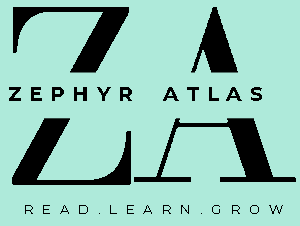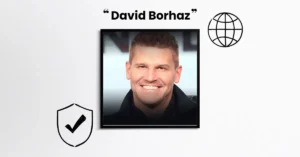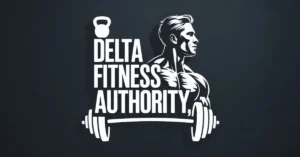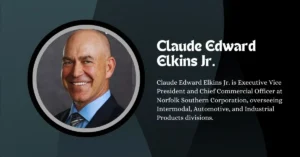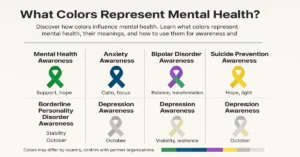Key Intake
Q1: What age do you start homeschooling for the best results?
Most children start homeschooling between ages 5 and 7, though legal minimums allow some families to begin at age 3-4.
Q2: What if my child struggles with homeschool structure?
Extend deschooling and gradually introduce daily routines.
Q3: How does homeschool socialization work for early starters?
Through playgroups, community programs, library events, and mixed-age interactions.
Q4: Do I need teaching certification to homeschool?
No, most states allow parents to teach without certification.
Q5: Are there negative effects of starting too early?
Potential resistance if pushed before developmental readiness
Q6: Can I homeschool multiple children of different ages?
Yes, using multi-level teaching strategies and shared activities.
Table of Contents
Introduction
Ever wonder what age is right to start homeschooling your child? Most families begin between ages 5-7, coinciding with kindergarten years, though you can legally begin as early as preschool (ages 3-4). Research from the National Center for Education Statistics (NCES) shows that about 3% of U.S. children are homeschooled, reflecting a wide range of starting ages. According to the Homeschool Legal Defense Association (HSLDA), early starters benefit from flexible, play-based learning routines that lay a strong foundation for future academics.
Quick Answer:
Most children start homeschooling between ages 5 and 7, though legal minimums allow some families to begin at age 3-4.
The exact timing depends on your child’s developmental readiness, your state’s compulsory schooling laws, and your family’s educational goals. If you’re asking what age do you start homeschooling, the best answer is: when readiness and requirements align.
What is the best age to start homeschooling?

Choosing the right start age is more about your child’s readiness than the calendar. Children develop at different rates, so the “best age” is a mix of developmental, emotional, and legal factors.
Key indicators by age group:
- Ages 3-4: Curious, engaged in imaginative play, short attention span (5-10 minutes).
- Ages 5-7: Can follow 1-2 step directions, sit for 10-15 minute read-alouds, basic letter/number recognition.
- Ages 8+: Ready for structured lessons, independent focus, and complex concepts.
Educational philosophy matters:
- Unschooling: Start any age with interest-led activities.
- Classical/structured: Ages 5–7 often align best with formal curricula.
Can you start homeschooling at any age?
Yes, homeschooling is legal at almost any age. Families successfully begin with toddlers or teens. Legal flexibility allows mid-year transitions, meaning you don’t need to wait for September.
Age-specific considerations:
- Toddlers & preschoolers: Play-based routines, informal literacy and numeracy.
- Early school age: Gradual formal curriculum introduction, optional deschooling if transferring from public school.
- Teenagers: Focused electives, college prep, and accelerated learning options.
Myth vs Fact: “Only young children can homeschool successfully” false. Many teens thrive with individualized pacing and interest-aligned learning.
How do I know if my child is ready for homeschooling?

Child readiness is critical. Age alone doesn’t dictate success when deciding what age do you start homeschooling.
Readiness checklist (15+ signs):
- Follows 1–2 step directions
- Listens to short stories/read-alouds
- Demonstrates basic self-care skills
- Shows curiosity about letters, numbers, books
- Confident motor skills (pencil grip, cutting)
- Predictable eating/napping patterns
- Ability to handle frustration in structured activities
- Interest in imaginative play and storytelling
- Emotional regulation in group or structured settings
What are the legal ages for homeschooling by state?

Compulsory education ages in the U.S.:
- Age 5: 8 states
- Age 6: 25 states
- Age 7: 14 states
- Age 8: 2 states
State regulation types:
| State Type | Example States | Requirements | Notes |
| High-regulation | NY, PA | Annual notice, curriculum plan, quarterly reports, standardized testing | Strict oversight |
| Moderate | CA, TX | Initial notice, basic record-keeping, annual portfolio review | Balanced |
| Low-regulation | ID, AK | Minimal notice, little reporting | Flexible |
Tip: Always check HSLDA or local DOE for current reporting deadlines and testing requirements.
Should I start homeschooling if my child is behind?
Individualized homeschooling can accelerate learning. Many perceived delays are due to mismatched learning styles rather than ability deficits.
Strategies:
- Conduct informal assessments before curriculum selection
- Match learning approach to child’s style (visual, auditory, kinesthetic)
- Monitor progress with weekly portfolio updates
Expert insight: Charlotte Mason and Raymond Moore suggest children often catch up within months when learning aligns with their interests.
How do I transition from public school to homeschooling?
Mid-year transitions are fully feasible. Step-by-step process:
- Legal withdrawal: Notify district, complete forms, obtain records
- Deschooling period: 2–8 weeks of relaxed learning (read-alouds, field trips)
- Curriculum placement: Start at comfortable level, not necessarily grade-level
- Community integration: Join co-ops or local homeschool groups
- Routine establishment: Daily schedules for learning and play
Is it too late to start homeschooling in high school?

It’s never too late. Teen starters benefit from independence, accelerated pathways, and focused electives.
Considerations for older beginners:
- Transcript creation for college
- Tailored socialization via dual enrollment or volunteering
- One-month deschooling per year previously in school
- Specialized curricula for advanced subjects
Sources
- National Center for Education Statistics (NCES): Provides official data on compulsory schooling laws and homeschooling trends across the U.S.
- Homeschool Legal Defense Association (HSLDA): Trusted authority on legal requirements and compliance for homeschooling families.
- Pew Research Center: Offers up-to-date statistics on the growth and demographics of homeschooling in America.
- Responsible Homeschooling: Detailed state-by-state homeschool law reference.
- Homeschool.com: Practical breakdown of homeschooling laws and requirements by state.
Conclusion
There’s no one-size-fits-all answer to what age do you start homeschooling. Success depends on your child’s developmental readiness, your family’s goals, and your state’s legal requirements. Whether you begin with a curious preschooler exploring letters, a 5-year-old ready for structured phonics, or a teenager transitioning from public school, the key is to tailor the approach to your child’s needs. By observing readiness signs, following legal guidelines, and building consistent routines, you can confidently decide what age do you start homeschooling and set your child on a path to both academic growth and emotional well-being.
Author Bio
Clara Jennings is a Homeschool Consultant with an experience of 8 years guiding families on legal compliance, developmental readiness, and curriculum planning. Provides practical guidance for parents navigating personalized home education.
For more informational insights. Try watching: What Age Can I Start Homeschooling My Child?
